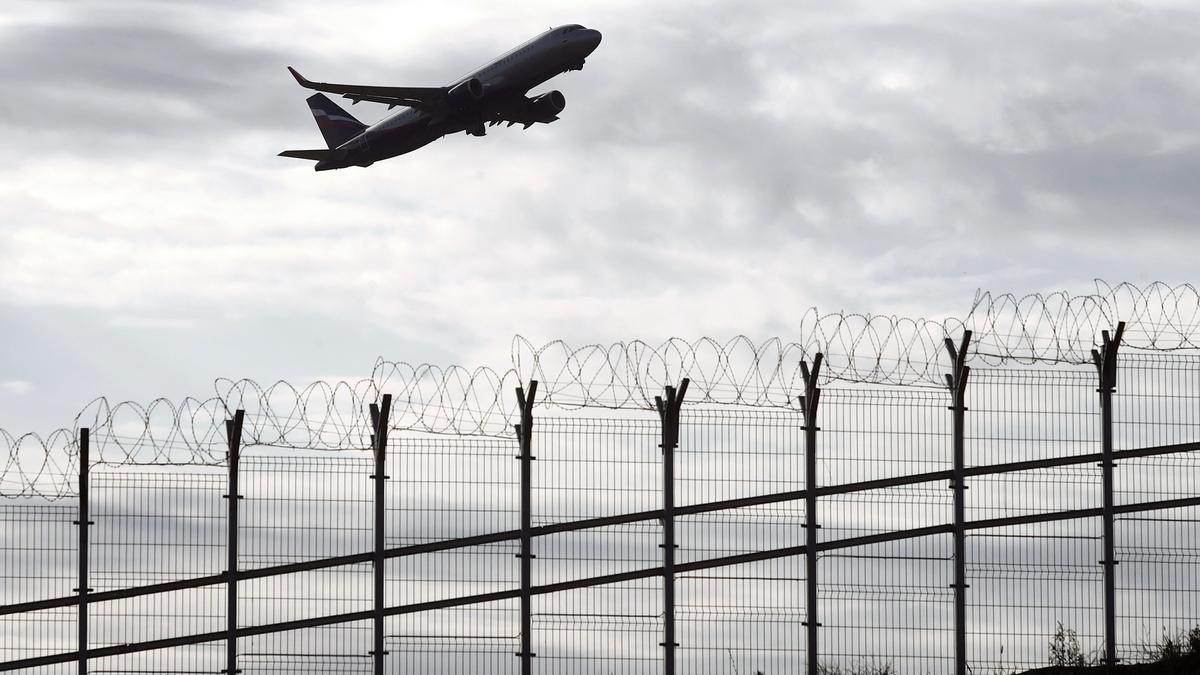Starting from 15 May, Russia is reintroducing visa-free travel for citizens of Georgia and planning to resume direct flights to the country. Georgian politicians are perplexed by the move: pro-Western opposition considers it a trap and an obstacle for European integration, calling Putin’s decision a “gift” in return for the Georgian government’s pro-Russian stance. Representatives of Georgian Dream, the ruling party, say that they need to be pragmatic: the additional tourist flow will be beneficial for the economy, while visa-free travel is good news for the “million Georgians in Russia”.
Meanwhile, the Georgian public, which has lived through the arrival of dozens of thousands of Russian migrants since the start of the war in Ukraine, is worried about what would happen if more Russians were to relocate to Georgia.
Ia Barateli is following the events for Novaya-Europe.
Why and how were visas introduced
Many associate the deterioration of relations between Tbilisi and Moscow with Georgia’s third President Mikheil Saakashvili. However, he had nothing to do with the introduction of visas: it all started back during the First Chechen War — back then, Russia was ruled by Boris Yeltsin and Georgia by Eduard Shevardnadze.
After the USSR had collapsed, Georgia became the first country (excluding the Baltic states) that Russia introduced visas for. And even though by that point Russia had managed to corner Georgia into being part of the Commonwealth of Independent States (CIS), an organisation made up of former Soviet republics, the relationship between Tbilisi and Moscow was deteriorating rapidly.
At the beginning, Shevardnadze, former head of the USSR Foreign Ministry, supported Russia in the First Chechen War. The support amounted to Georgia letting Russian border officers join the Georgian ones in guarding the Chechen part of Georgia’s border, located high in the Caucasus Mountains, near the Shatili village, from 1994 to 1998.
Hundreds of Chechen citizens — children, women, as well as men who were part of the resistance — fled the war using mountain paths, trying to find refuge in Georgia’s Pankisi Gorge. Pankisi is full of Chechen residents whose ancestors moved there in the 19th century. In Russia, Pankisi was referred to as a “hotbed of terrorism”, with Russian aviation even bombing the gorge at one point.
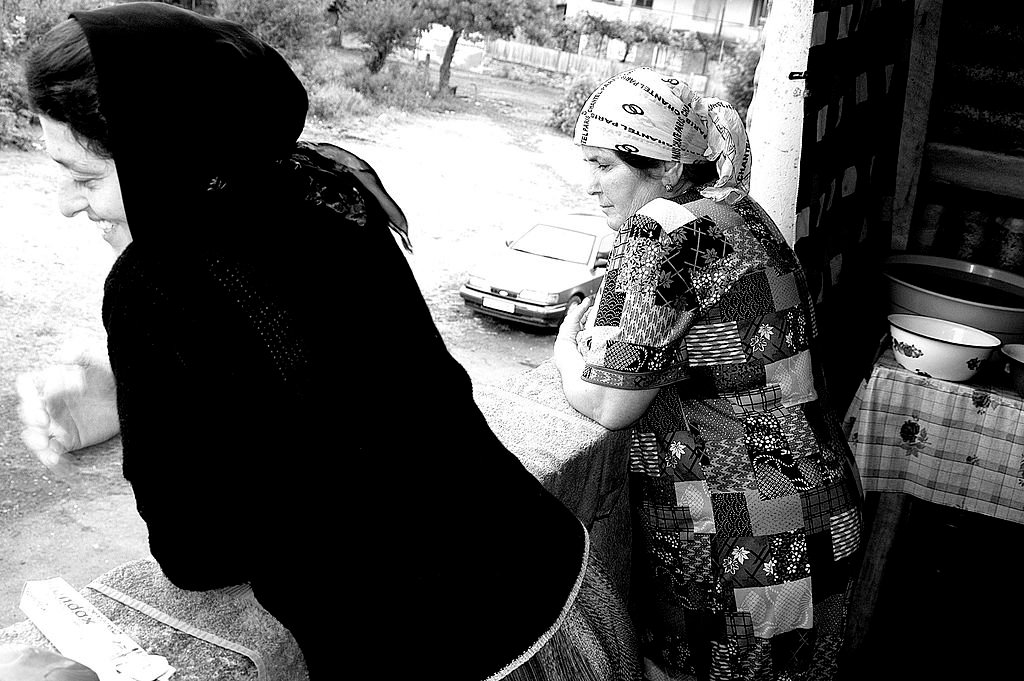
Chechen refugees in the Pankisi Gorge, 2004. Photo: Jonathan Alpeyrie / Getty Images
While Russia was calling Chechen people separatists and trying to wipe Chechnya’s capital Grozny off the face of the earth, Tbilisi lost control over almost all of Abkhazia’s territory — over 300,000 Georgians were exiled from Abkhazia in an ethnic cleansing recognised by the international community.
At the end of 1998, Yeltsin came to Shevardnadze with a new proposal — let Russian soldiers use the military bases, which had remained in Georgia and Armenia since the Soviet times, to go through Georgia’s territory in order to attack Chechnya from the rear. There was also a proposal to allow Russian bombers to fly into Chechnya through the territory of Georgia.
This time, Shevardnadze said no, adding that “Georgia’s people will not understand”. Furthermore, Georgia gave Russia an ultimatum: either Russia withdraws its military bases from the territory of Georgia or Russia stops supporting Abkhazian separatists.
In autumn 1999, there were first reports about Vladimir Putin, Russia’s Prime Minister at the time, ordering to develop a draft [bill] to introduce visas for citizens of Georgia.
Moscow put forward conditions to Tbilisi which were later read out in the Parliament by head of Georgia’s Foreign Ministry at the time, Irakli Menagarishvili: Russian military bases to remain in Georgia; Russia to receive a lodgement and airfields in Georgia for the operation in Chechnya; Georgia to refuse its participation in the pipeline project Baku — Tbilisi — Ceyhan, which will transport Azerbaijani oil to the West, and to join the Eurasian Customs Union. In response, Russia would promise not to introduce visas for Georgian citizens.
Tbilisi did not find these prospects inspiring and officially stated that it might be time for Georgia to join NATO.
In the end, the relations between Georgia and Russia came to a standstill once again; in December 2000, Vladimir Putin, now Russia’s President, signed a decree on introducing visas for citizens of Georgia.
The visa requirements were rigid — at first, the only way for Georgians to come to Russia was to receive an invitation from relatives or Russian employers. In 2015-2017, Russia eased some rules when it came to business, work, study, humanitarian, and private visas: there was no longer a need to have a close relative in Russia. However, getting a visa still took time (from one to six months) and meant a lot of hassle.
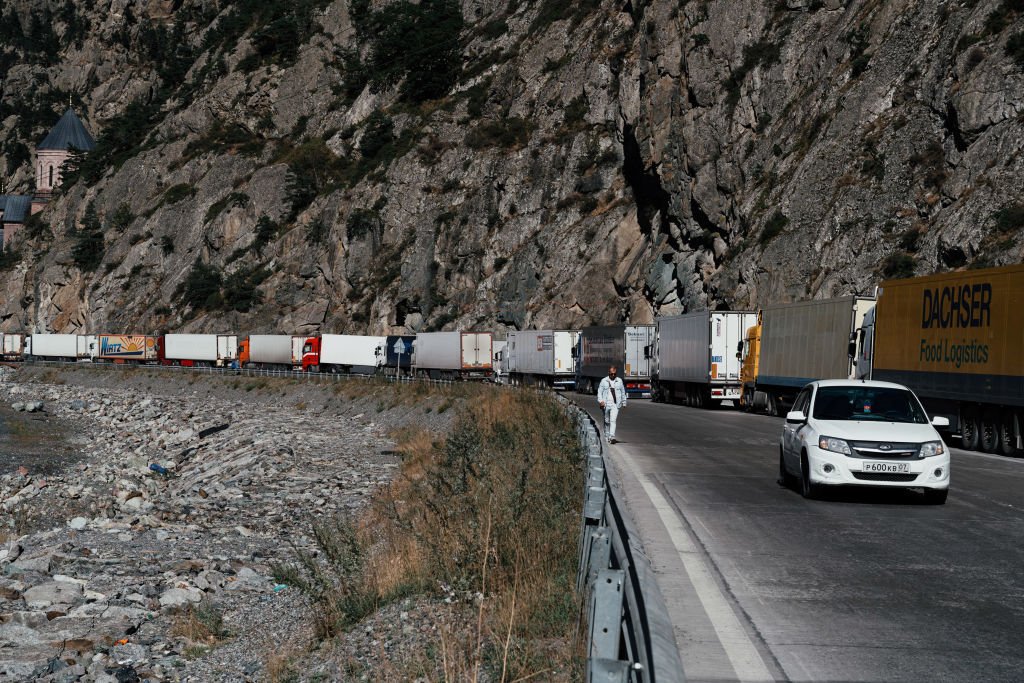
The Verkhny Lars border checkpoint on the Russia-Georgia border. Photo: Tako Robakidze / Bloomberg / Getty Images
This saga lasted 22 years and six months, until Vladimir Putin, still Russia’s President, signed a decree on the cancellation of visas for Georgian citizens.
During that time, a lot of things in the relationship between the two countries changed beyond recognition. Many Georgians think that by introducing visas, Putin accidentally did Georgia a huge favour: it led to a whole generation of Georgians who grew up significantly isolated from Russian influence.
Tbilisi doesn’t particularly expect a lot of Georgians migrating to Russia: everyone who wanted to had left back in the 1990s. The current situation is vastly different.
For example, the Russian language and Moscow universities have gone out of style for the Georgian youth over the past 20 years. Citizens of Georgia who left for Russia in the 1990s are reissuing their Georgian passports en masse, because they can be used to visit the EU without a visa, while the majority of plane tickets that average Georgians buy are for trips to Poland, Germany, Italy, and the US. More and more often, Georgians receive dollars and euros instead of rubles from their relatives abroad — in recent years, the volume of financial transfers from Georgian migrants in the West has exceeded the volume of transfers from Georgian migrants in Russia.
Furthermore, Tbilisi made it easy for Russians to get visas to Georgia — at first, Russians could get a visa directly on the land border or at the airport. Former President Saakashvili decided to waive visas for Russians completely in February 2012 — even despite the 2008 Russo-Georgian War.
Today, Russian citizens can remain in Georgia without a visa for up to a year. This is why up to a hundred of thousands of Russians chose Georgia as an asylum after the start of the war in Ukraine.
According to Georgia’s Ministry of Internal Affairs, almost 1.5 million Russians (this number includes all types of trips, including tourism) visited Georgia in 2022 — which is almost five times the number of Russians that visited the country in 2021. Furthermore, out of 179,778 foreigners who moved to Georgia in 2022, 62,304 were Russians.
Support independent journalism
Civil aviation as a form of blackmail
In the last ten years, relatively cheap and safe Georgia has become a popular destination for Russian tourists. Moscow, obviously, uses that as political leverage.
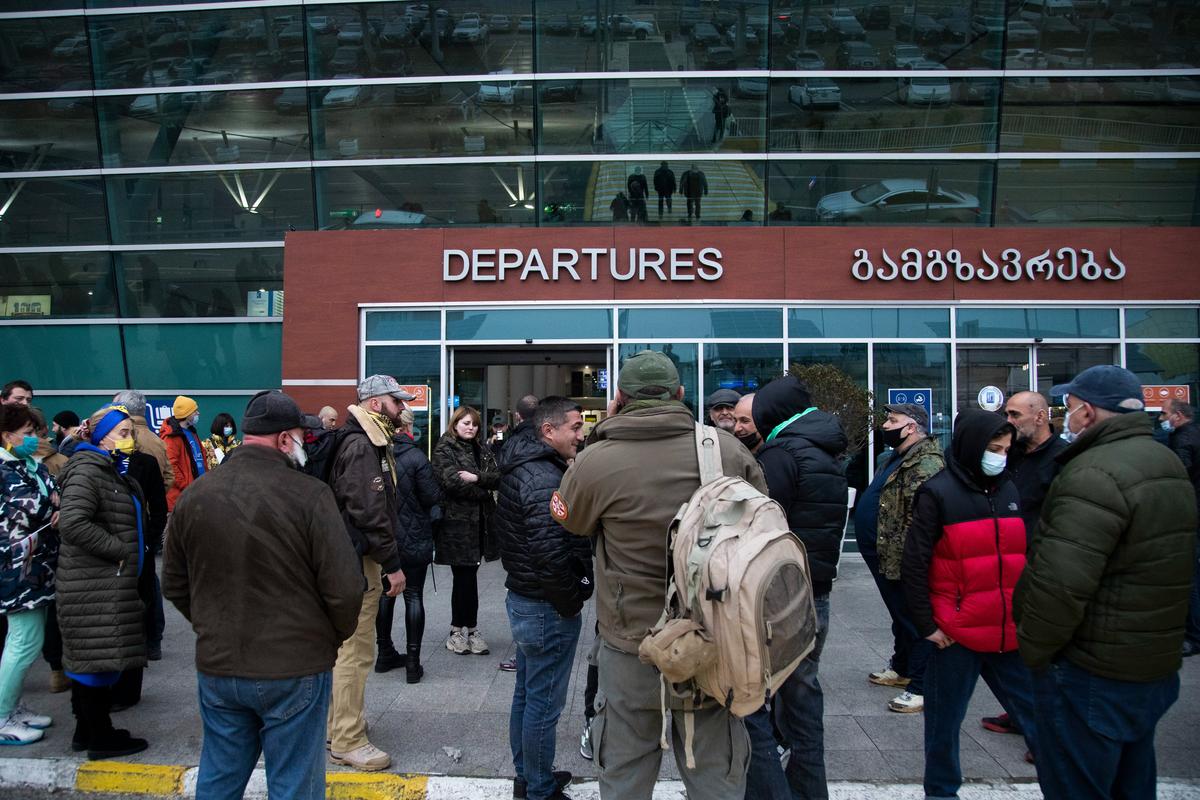
Tbilisi International Airport, Photo: Daro Sulakauri / Getty Images
The first time direct flights were banned was in October 2006, when Russian officers were arrested in Tbilisi and accused of espionage. In February 2008, negotiations between Putin and Saakashvili were held in Moscow, after which the flights resumed. In August 2008, the war between Georgia and Russia started, and regular flights were halted. Furthermore, no civil planes flew over Georgia at all for some time — the first ones to breach the blockade were Ukrainian pilots. This happened after the US had sent its military transport aircraft to Georgia, thus signifying that the Georgian sky was safe.
In 2010, Georgian Airways launched the Tbilisi — Moscow charter flights, which became regular in 2014.
Georgia kept becoming more and more popular as a tourist destination, and the demand for flights to the cities of Tbilisi and Batumi was at an all-time peak for big Russian airlines — Aeroflot, Ural Airlines, and S7.
In 2018, Georgia was visited by almost 9 million tourists, 1.4 million Russian citizens among them.
In June 2019, the success of the tourism season was called into question after Putin had signed a decree on a “temporary ban” of air travel from Russia to Georgia on 8 July.
This was Moscow’s way of expressing indignation over a “Russophobic campaign” and “threats to the safety of Russian citizens”. And it wasn’t because someone was hurting Russian tourists in Georgia, no. Georgian people refused to offer their hospitality to exactly one person — Sergey Gavrilov, a member of Russia’s State Duma, the lower house of parliament. He came to Tbilisi for an Orthodox conference and according to the rules of procedure, ended up sitting in the chair of the Georgian parliament’s speaker. The entire country saw that spectacle on the news.
Several hours later, a spontaneous rally was storming the parliament building. Gavrilov himself, whose car was egged, had to immediately flee Tbilisi, while the government had to disperse the outraged crowd using rubber bullets. These events are referred to as Gavrilov Night by Georgians, who periodically reproach the government for the force used against the protesters, which led to several people getting severely hurt and losing their eyesight. Afterwards, the country faced a wave of protests, with people declaring that the government was ready to “rip out their citizens’ eyes” for Russia.
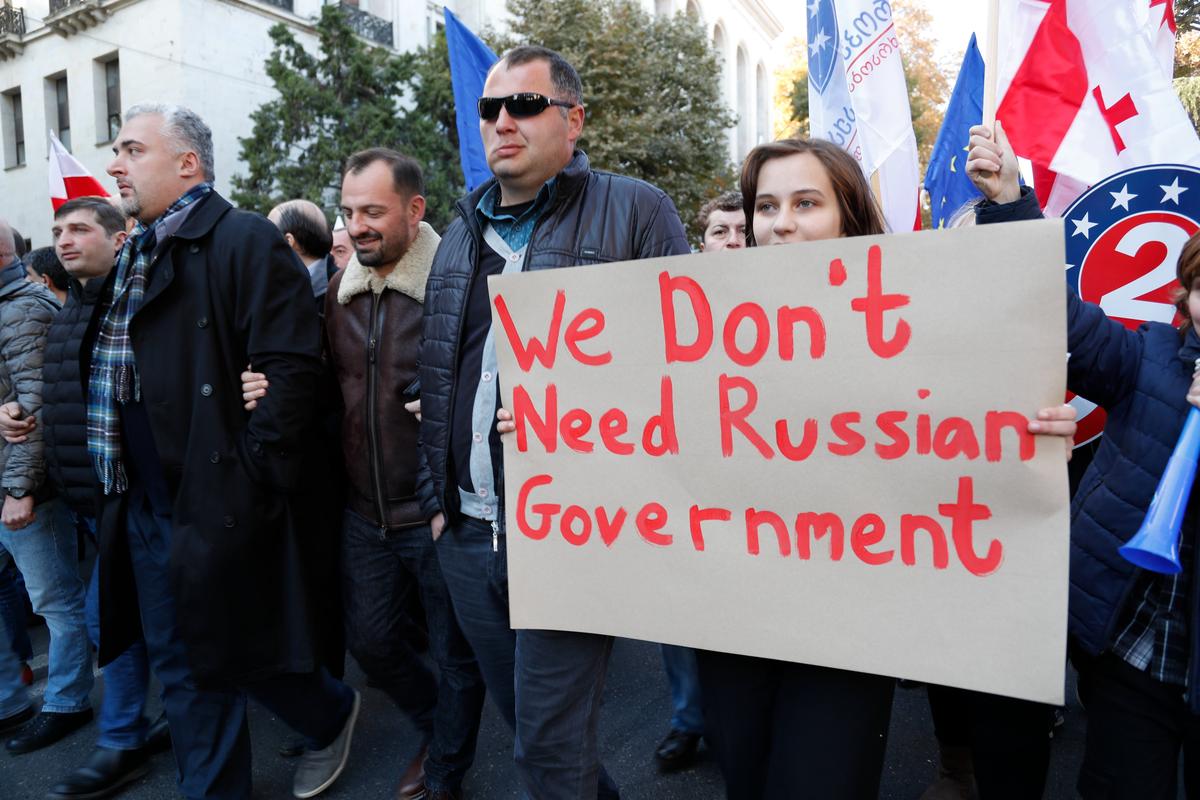
Protester during a rally in Tbilisi, 2019. Photo: EPA-EFE / ZURAB KURTSIKIDZE
Despite the protests, Georgia saw a record-breaking number of tourists in 2019 — among them almost 1,463,000 were Russians. Although the pandemic started soon after, which put the tourism industry into the ground, travel agencies admitted that the lack of direct flights was a serious issue.
Discussions about resumption of direct flights started in Moscow only four years later, at the beginning of 2023. On 18 January, Russia’s Foreign Minister Sergey Lavrov declared that Russia hoped to resume direct flights to and from Georgia in the near future.
By that point, the war in Ukraine had gone on for almost a year, and Georgia’s President Salome Zourabichvili stated that she was against the resumption of flights from Russia at the time when all of Georgia’s partners were expressing solidarity with “Ukraine’s selfless struggle”. The president, who holds no real power over the government, called upon the authorities to think about their reputation, which had already been less than stellar due to the reports that Georgia had been participating in a scheme designed to let Russia bypass the sanctions.
‘A million Georgians’
The Georgian Dream-led government has always emphasised that they are conducting a “do not trigger” policy towards Russia. Nevertheless, they have been moderate with their comments about the reintroduction of visa-free travel and resumption of flights. In general, they welcomed the decision, stating that it would be good for the economy and facilitate life for the “million Georgians” that allegedly live in Russia.
The phrase “a million Georgians in Russia” has been used by officials and Georgian Dream politicians for a long time. Some of them talk about a “million Georgian citizens”, some about just “Georgians”, but always referring to them as “compatriots”.
This is the reasoning always given by the government: this is why they don’t want to “ruin the relationship with Russia”.
Meanwhile, according to Russia’s 2020 census, 113,687 Russians defined themselves as ethnic Georgians. According to the same census, there were 257,725 Georgian natives (regardless of their ethnicity) in Russia in 2020. In 2010, that number was 551,674.
“Our stance is simple: up to one million people, citizens of Georgia or Georgians, who left the country, reside in Russia, and they have to travel to Georgia through other countries,” representative of Georgian Dream Irakli Kobakhidze said in an interview with TV company Imedi. “It leads to increasing expenses, creates discomfort, etc. In truth, Russia punished these people back in 2019, and we see that now this ban has been lifted. We couldn’t have had any stance on this issue, seeing as it was a unilateral decision at the time when the ban had been imposed. When it comes to Georgia, we don’t use sanctions on Russia, and we have explained this stance before. By imposing sanctions against Russia, we actually impose sanctions against our own country and people. Obviously, we will not be doing that. We have calculated what sanctions against Russia would do to Georgia’s economy. Last year, our economic growth was over 10%, if [we had introduced sanctions] we would’ve seen a 10-18% fall. This was what the radical opposition wanted, they wanted the country to get poorer, but they didn’t manage to achieve [this goal], because we took a firm stance.”
It took Georgia’s Prime Minister Irakli Garibashvili two days to comment on the issue: it turned out that there was a “discussion” among the members of the ruling party after all.
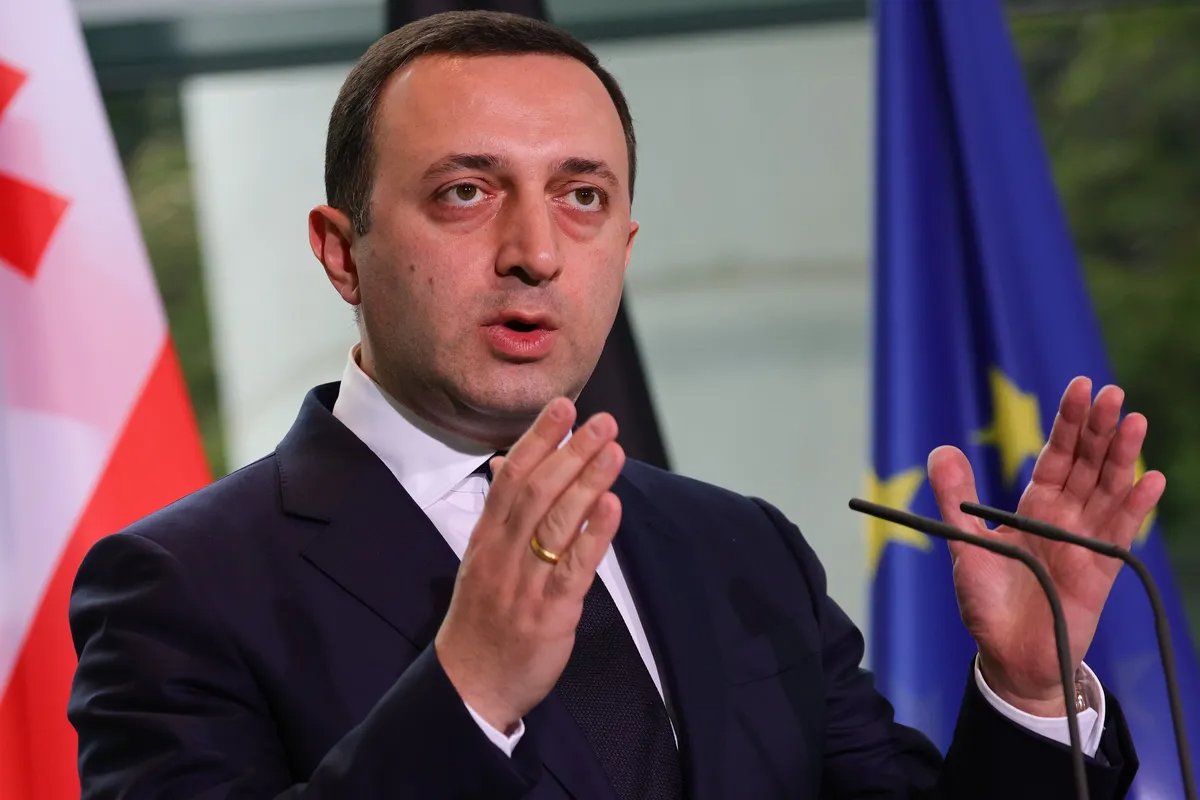
Georgia’s Prime Minister Irakli Garibashvili. Photo: Omer Messinger / Getty Images
Eventually, the governing team concluded that “flights, especially if the planes in question are not under sanctions, are part of trade and economic relations. They are a small component, but not the main detail.”
Meanwhile, President Salome Zourabichvili has been countering the government’s stance for several days now: she thinks that resuming flights with Russia “is completely unacceptable, impractical, and untimely”. The president even proposed to decrease the duration of stay for Russian citizens without a visa in Georgia to three months from a year.
According to Zourabichvili, the country has to take care of its diaspora but “it shouldn’t mean dancing to the Kremlin’s tune at a time of their choosing!”
The opposition is outraged by the government’s willingness to resume flights. Some members are even prepared to organise protests at the airport if Russian planes land there.
Opposition deputy for Georgia’s Parliament Khatia Dekanoidze thinks that the government’s willingness to resume flights with Russia once again demonstrates that their policies are “anti-Western and anti-Ukrainian”.
“Putin’s decisions are a reward for the policies conducted by Georgia’s authorities in the last months, especially after the start of the full-scale Russian aggression in Ukraine. Putin’s decision to award the Georgian government is also related to the fact that lifting the ban on flights, air travel, and visa restrictions will lead to the growth of the Kremlin’s influence. This is precisely the message that Putin and the Kremlin are sending to the corrupt government. But everyone, especially airlines, need to know: if you fulfil Putin’s wishes, you can end up under Western sanctions”.
In her turn, political scientist Khatuna Lagazidze considers Putin’s decision to be proof of the fact that he’s trying to solidify his presence at least in Georgia, because he’s losing in Ukraine.
“Many talk about Putin allegedly awarding Georgia’s government. But I think that his main motivation is sending out a message to his own people: he might not win the war in Ukraine, he might be losing positions in Armenia and Azerbaijan, but at least his presence is big in Georgia. Basically, he is formalising the conquest of Georgia. He’s also letting the West know that Georgia is his backyard, and he can do anything he wants here. That Georgia’s government is his partner, and the West has no place here. Both Putin and Georgia’s government know all too well that this move will create another obstacle on the way to Georgia’s European integration.”
Resuming flights
Russian airlines are already planning a record-breaking number of flights to Georgia: if these plans come to fruition, then they will fill up one third of the Tbilisi airport’s display board, they might even have to put up more check-in desks.
Four airlines have requested to be allowed to execute 49 flights to Tbilisi a week. Thus, seven flights from Russia would be arriving in Georgia daily.
Russian experts speculate that flights could resume within a month, but they emphasise that everything will depend on Georgia’s conditions. Russia’s Transport Ministry has already stated that Russian-made aircraft would be used for these flights — most likely, Sukhoi Superjet 100.
Until 2019, flights from Russia to Georgia were carried out by Russian airlines Aeroflot, Ural Airlines, S7, Red Wings, Utair, and Pobeda. Almost all of them are now under sanctions — 20 Russian airlines in total.
Meanwhile, Georgian officials of all levels have said several times that they were ready to only accept flights from companies not under sanctions.
Experts think that Russia and Georgia might possibly create a joint airline to bypass sanctions. However, they also warn that Georgia could be punished as an example for others in response.
Moreover, both the Tbilisi and Batumi airports could refuse to allow Russian planes in because of the sanctions — they are currently being managed by French company ADP Group which bought out shares from Turkish company TAV Airports.
In that case, Georgia’s government would be able to provide the only international state airport — the one in the city of Kutaisi (around 230 km away from Tbilisi).
Expert Georgy Molodinashvili, managing partner of the Aviation Consultation Group, thinks that the probability of any Georgian airline flying to Russia is not very high.
“Because of the war between Russia and Ukraine, the Russian aviation sector is under sanctions. The Georgian airlines that want to fly to Russia will face a lot of problems, seeing as the international insurance that they use is not valid in Russia. There will also be a difficult situation with receiving maintenance, because all Georgian airlines operate on Western technology.”
The European Union has called upon Georgia not to let unreliable Russian planes onto their territory and treat any potential attempts to bypass sanctions with caution. It would be even better to join the aviation sanctions against Russia, according to the EU.
The US Department of State has also reacted to the Kremlin’s decision: “The people of Georgia would likely prefer that President Putin withdraw Russian troops from the 20% of Georgian territory that Russia occupies, rather than see direct flights restored or visa regime changed.”
A representative of the Department of State, in a written commentary for Voice of America, warned that now is “not the time to get close with Russia”.
“Many Western countries, including the US, prohibit Russian aircraft from entering their airspace. If direct flights between Russia and Georgia resume, we of course would be concerned that companies at Georgian airports could be at risk for sanctions if they service aircraft subject to import and export controls. The entire Western community has distanced itself from the Russian regime, and now is not the time for any country to increase its engagement with Russia.”
Join us in rebuilding Novaya Gazeta Europe
The Russian government has banned independent media. We were forced to leave our country in order to keep doing our job, telling our readers about what is going on Russia, Ukraine and Europe.
We will continue fighting against warfare and dictatorship. We believe that freedom of speech is the most efficient antidote against tyranny. Support us financially to help us fight for peace and freedom.
By clicking the Support button, you agree to the processing of your personal data.
To cancel a regular donation, please write to [email protected]
